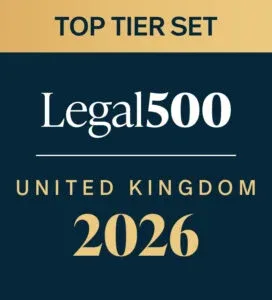Contingent Pleading of Fraud: A Review of Mustard v (1) Flower (2) Flower (3) Direct Line Insurance [2021]
Added in: Civil and Insurance Fraud
Given the ethical restrictions on pleading fraud without reasonably credible material to do so, it is unsurprising that defences to suspicious claims falling short of that threshold often make reference to the disapplication of qualified one-way costs shifting or section 57 of the Criminal Justice and Courts Act 2015 in the event that the claim is determined to be fundamentally dishonest. This contingent pleading has not to date routinely attracted much controversy and has been rarely objected to by claimants’ representatives. However, such objections may at least in the short term become more commonplace given the judgment of Master Richardson in Mustard v (1) Flower (2) Flower (3) Direct Line Insurance [2021] EWHC 846 (QB) where the defendant’s application to plead fundamental dishonesty on a “contingent” basis was refused. It is necessary therefore to have an appreciation of the judgment and its likely consequences.
This article will argue that the judgment is in a number of respects helpful to defendants facing suspicious claims where there is insufficient material to justify a positive pleading of fraud and in fact leaves such claimants in a worse position.
The claim arose out of a road traffic accident in January 2014. Liability was not in issue. The claimant had a complex medical history, and her case was that the collision caused her to sustain a subarachnoid brain haemorrhage and a diffuse axonal brain injury such as to have left her with cognitive and other deficits. The defendant’s case was that the impact was relatively minor whereas, on the claimant’s case, it was at least a “medium velocity impact”. In turn, the defendant’s experts concluded that the claimant had suffered no brain injury, whereas the claimant’s experts said she had suffered a serious brain injury (albeit the manifestations of that injury were “subtle”). The disciplines of the key experts included neurology, neuropsychology, neuroradiology and audio-vestibular medicine. Joint reports had been prepared and the claim was set down for a two-week trial in November.
The defendant applied to amend the contents of the defence. The amendments sought to do broadly three things: (i) to modify the description of the forces involved in the accident, (ii) to provide a more detailed exposition of the claimant’s pre and post-accident presentation, which included the proposition that her problems since the accident were consciously or unconsciously exaggerated (the defendant could not say which) and (iii) to threaten or foreshadow the making of an application under section 57 Criminal Justice and Courts Act 2015 in the event of a finding of fundamental dishonesty.
The objection to the proposed amendment was that it amounted to an allegation of fraud which was not properly particularised and for which there was no basis in evidence. This was said to be unfair to the claimant and contrary to Rule 9 of the BSB Code of Conduct, which requires reasonably credible material establishing an arguable case of fraud before it can be pleaded. The defendant’s response was that a positive averment of dishonesty was not being made but that they were simply alerting the claimant to the nature of their case at trial. They intended to explore in cross-examination whether the claimant was consciously exaggerating symptoms for gain and, if so, make an application under section 57. The contentious areas of her evidence had been identified and the detail was for cross-examination. Prior to that, the defendant was “not sure” whether any exaggeration was conscious or unconscious. The purpose of the amendment was to ensure that the claimant was not being “ambushed”.
Master Richardson reviewed the cases of Howlett v (1) Davies (2) Ageas Insurance Limited [2017] EWCA Civ 1696 and Pinkus v Direct Line [2018] EWHC 1671, the terms of section 57 and CPR 44.16(1) (the rule concerning the disapplication of qualified one-way costs shifting where the claim is found to be fundamentally dishonest).
The Master “somewhat against” first instincts concluded that the disputed amendments should not be allowed. The reviewed case law established that it was open to the trial judge to make a finding of fundamental dishonesty whether it had been specifically pleaded or not. To put that another way, an application by the defendant for a dismissal of the claim pursuant to section 57 of the 2015 Act did not require any particular formality. For example, in an appropriate case it could be made orally and as late as the defendant’s closing submissions. The question of whether the court would entertain such an application would likely hinge on whether “adequate warning of, and a proper opportunity to deal with” the possibility of such a conclusion had been given (Howlett) or whether “sufficient notice” had been given of the issues raised and the opportunity to deal with those issues by way of additional evidence, if necessary, from the experts (Pinkus).
The Master identified a factor underlying the above decisions being that neither the defendant nor the judge may be in a position to make any conclusions about a party’s honesty until that party had been cross-examined. It was said that this would especially be the case where honesty or dishonesty turns on the distinction between conscious and unconscious exaggeration. Although the Master recognised that it may be said that the sort of contingent and provisional plea proposed was simply giving the claimant fair warning that the defendant may, if the evidence turns out a certain way, make an application under section 57. However, on reflection the Master decided to refuse permission for the following reasons:
- The proposed amendment served no purpose; an application under section 57 could be made without it having been foreshadowed in a pleading. The Master did not consider it correct to characterise an application under section 57 as a “right”, still less something that had to be reserved in advance.
- A plea of fundamental dishonesty had no real prospect of success and therefore, even on a contingent basis, did not satisfy the test for granting permission to amend.
- The proposed amendment caused prejudice to the claimant. A plead of fundamental dishonesty had to be reported to the claimant’s legal expenses insurers and it opened up the “theoretical” possibility of them avoiding the policy ab initio. Furthermore, a finding of fundamental dishonesty would have grave implications for the claimant and the proposed amendment, if allowed, would be apt to raise further fears and anxieties for which, at the present time at least, there was no proper basis.
The Master concluded that nothing in the judgment was intended to detract from the modern ‘cards on the table’ approach and where a defendant does have a proper basis for a plea of fundamental dishonesty and intends to apply under section 57 then that should be pleaded or be subject to a written application at the earliest reasonable opportunity. The Master stated that the intention was to discourage pleas of fundamental dishonesty which are merely speculative or contingent.
The judgment gives rise to the following points:
- The case concerned the potential application of section 57 in the context of conscious/unconscious exaggeration of injuries and is to be seen in that context.
- There is nothing within the case which precludes a defence identifying the fundamental aspects of a claim and specifically placing in issue the honesty or credibility of such matters, thereby setting up a closing submission that a claim is fundamentally dishonest.
- Helpfully, the case supports the proposition that section 57 does not have to be specifically heralded in the papers to be deployed, even if this is only specifically raised for the first time in submissions after the evidence has been tested.
- Claimants are arguably disadvantaged as although the Master identified the “theoretical” possibility of a legal expenses insurer voiding a policy from the outset upon a contingent pleading of dishonesty, the more real prejudice of a claimant not being appropriately warned regarding the consequences of a potential finding of dishonesty was not specifically addressed in the judgment.
- The judgment will not likely materially alter the handling of put to proof defences to claims where the spectre of fundamental dishonesty is also being alluded to as there are myriad formulations of pleadings which can be used in a defence that would not run contrary to it.










